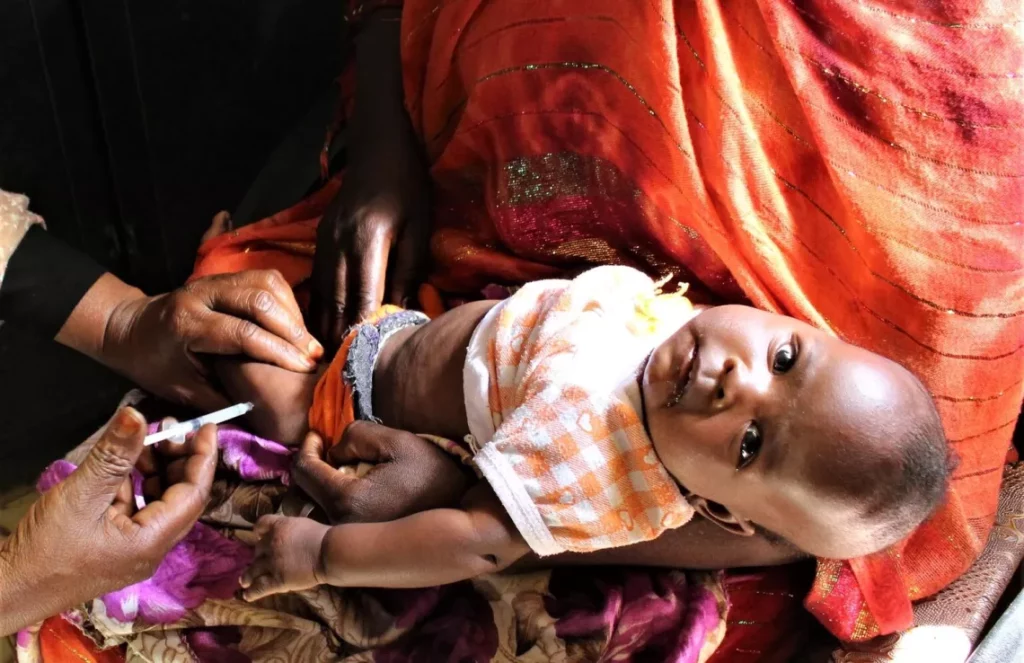‘Urgent intervention needed to provide minimum health services in Sudan’

An infant in Sudan receives a vaccination, in 2020 (File photo: Bos / UNICEF Sudan)
The widespread destruction of the health infrastructure in Sudan, caused by the fighting between the Sudan Armed Forces (SAF) and its paramilitary counterpart, the Rapid Support Forces (RSF) since mid-April, has repeatedly led to calls for the establishment of safe corridors for the delivery of medical aid items and secure areas for treatment.
Over the past months, several international organisations working in the field of health and humanitarian aid, including the UN World Health Organisation (WFP) and the UN children’s Fund (UNICEF), the UN Office for the Coordination of Humanitarian Affairs (OCHA), and the International Committee of the Red Cross (ICRC), have issued warnings that the health system in Sudan is on the verge of a complete collapse and that rapid intervention is needed in order to provide minimum health services to Sudanese, especially to children.
The Sudanese Doctors’ Union reported end April already that at least 70 per cent of the hospitals in and near battlegrounds were out of service.
In an interview with Radio Dabanga’s Sudanese Files programme yesterday, Omar El Najeeb, former Minister of Health described the current health situation in the country as “more than catastrophic”.
He accused both warring parties of deliberately targeting hospitals and other health facilities in the country. “For instance, the battle for El Gezira, in particular for the capital Wad Madani, 10 days ago, has led to the forced closure of all hospitals in the state.”
The former health minister referred in this context to the war in Gaza.
“Israel has been targeting hospitals in Gaza, saying that Hamas fighters were hiding there. In Sudan, we witnessed the same behaviour, in particular at the beginning of the war in Khartoum. Everyone remembers how medical facilities were among the first sites to be destroyed, as RSF troops raided hospitals and clinics while the air force indiscriminately bombed these buildings.”
El Najeeb further reported that Khartoum did not receive a single shipment of medicine for six months. “Only small quantities destined for individuals reach the city.”
He said that the Sudanese Doctors Union in cooperation with grassroots members of emergency rooms in the Sudanese capital are currently attempting to make an inventory of the medical needs.
“The main problem, however, is how to safely deliver the aid items to the patients,” he said. “The fighting has to be stopped and safe pathways for the delivery of medical aids and medicine have to be agreed on first.”
He further lauded the many Sudanese medics who continued to work, despite the danger to be killed.
In mid-December, the ICRC announced the suspension of its operations in Khartoum, following an attack on a Red Cross convoy in the city the week before, whereby two people were killed, and seven others, including three ICRC staff members, were wounded.











 and then
and then